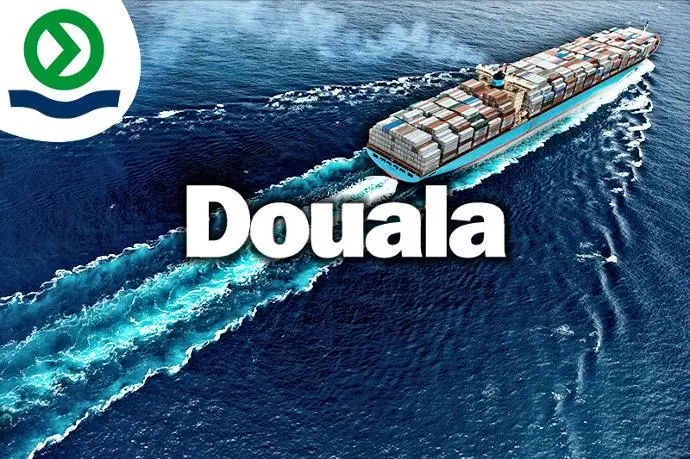Kribi’s Giant Port:
Africa’s New Gateway Hampered by Rusty Roads
Cameroon’s Kribi Deepwater Port, a symbol of regional ambition, has expanded with a new terminal capable of handling one million containers annually. Built with a $114 million investment and managed by Kribi Conteneurs Terminal (KCT), alongside partners like CHEC and CMA CGM, the port now boasts state-of-the-art equipment, extended quays, and increased storage capacity. It's intended to relieve congestion at Douala and serve landlocked Central African countries with greater efficiency.
Yet, the shining port remains hemmed in by crumbling roads and a missing rail lifeline. The promised Kribi–Lolabé motorway, 108 km long and initiated in 2015 with CHEC, was expected by 2022—and while Phase 1 is open, Phase 2 remains incomplete. Critics also cite residents displaced from nearby forests, including indigenous pygmy communities, raising environmental justice concerns
The road from Kribi through Ebolowa toward Cameroon’s south comprises unpaved gravel stretches—impassable in the rainy season—while paved routes via Yaoundé are recommended even for off‑road vehicles Without reliable highways or rail connections, even the most advanced port becomes a “sleeping giant”.
Local shippers are already feeling the strain: container dwells often stretch to 20–24 days, forcing urgent calls for penalties and demand for streamlined administrative procedures. While KCT and the Cameroon National Shippers’ Council discuss congestion measures, the core challenge remains: getting goods in and out efficiently.
Kribi stands at a crossroads. With global-grade container capacity, deep draft, and nascent industrial magnetism, it has all the makings of a world-class port. But infrastructure disconnect—broken roads, missing rail, delayed motorways—threatens to turn potential into frustration. The next task? Linking Kribi to Cameroon’s heart by finishing transport arteries and cementing its role as Central Africa’s true gateway.
The success of this bold project will be decided not by cranes or storage yards, but by the quality of the roads and railway tracks that trail behind. Until then, Kribi remains Africa’s brightest port—with an Achilles’ heel of dusty gravel.
A BESC (Bordereau Électronique de Suivi des Cargaisons) is mandatory for all shipments to Cameroon.
The R&C Desk simplifies the process and provides efficient assistance to comply with the latest requirements.
For further assistance, the R&C Desk website is available 24/7.
In a move to bolster maritime trade and infrastructure, the Maritime Organisation of West and Central Africa (MOWCA) and the African Development Bank (AfDB) have announced a collaborative effort to develop dry dock facilities across West and Central Africa. This initiative aims to enhance the region's maritime capabilities, providing essential maintenance hubs for vessels and reducing dependency on foreign facilities.
Dr. Paul Adalikwu, Secretary-General of MOWCA, emphasized that this partnership is a strategic step towards deepening maritime trade beyond coastal areas. By establishing dry docks, the region can expect improved logistical connectivity between seaports and inland areas, fostering economic growth and integration.
The collaboration also addresses the pressing need for safer and more efficient shipping routes. With increasing instability in the Red Sea due to armed conflicts, MOWCA and AfDB are exploring the redirection of maritime traffic to the Gulf of Guinea, positioning it as a viable alternative corridor for global trade.
Beyond infrastructure, the partnership underscores a commitment to enhancing the blue economy and ensuring the safety of maritime operations. Efforts include suppressing piracy, improving inland waterway viability, and enforcing stricter safety protocols, particularly in countries like Nigeria and the Democratic Republic of Congo.
Looking ahead, MOWCA is working closely with international organizations, including the International Maritime Organisation (IMO) and the African Union (AU), to transform into the African Maritime Organisation (AMO). A meeting of experts is scheduled for June 2025 in collaboration with AfDB to advance this agenda, aiming to unify Africa's maritime voice on the global stage.
This strategic alliance between MOWCA and AfDB marks a pivotal step in redefining Africa's maritime landscape, promising enhanced trade, security, and economic prosperity for the region.
A BESC (Bordereau Électronique de Suivi des Cargaisons) is mandatory for all shipments.
The R&C Desk simplifies the process and provides efficient assistance to comply with the latest requirements.
For further assistance, the R&C Desk website is available 24/7.
Get your BIETC/ECTN/
BESC/Waiver/Certificate for Cameroon!
Stay on up to date of all regulations!
Sources
cameroun24.net |
www.msn.com |
www.businessincameroon.com | www.railway.supply
Image by R&C Desk
What are you waiting for?
Let us make sure that you have the correct Electronical Cargo Tracking Note for you shipment!
Login
